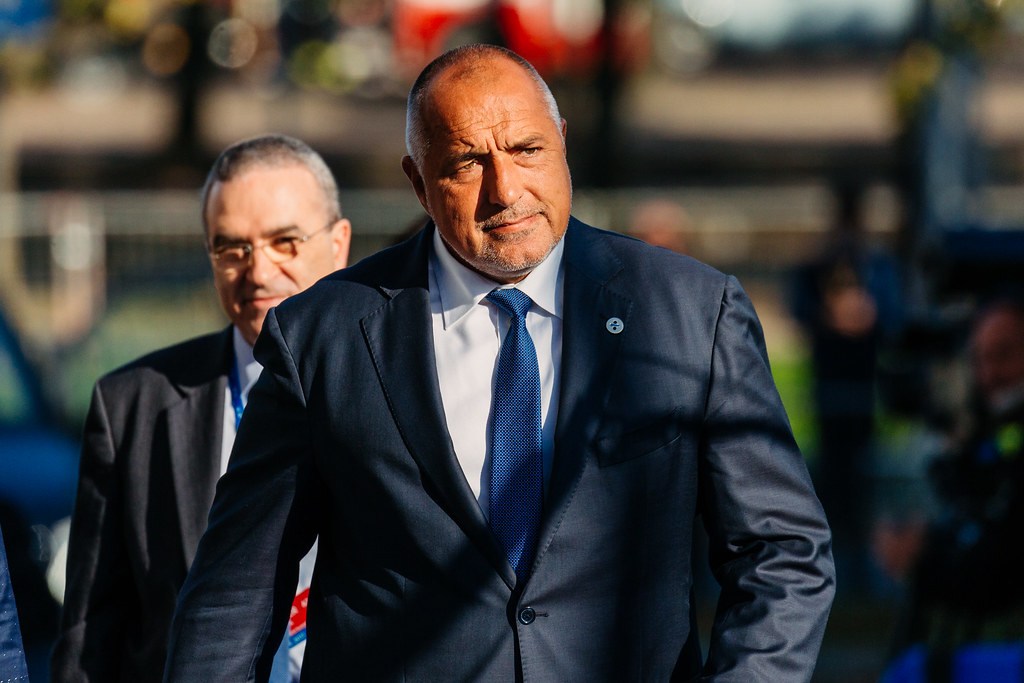Bulgarians have taken to the streets to protest long-standing issues of corruption and oligarchy, demanding that the president, the chief prosecutor and the government resign.
Protesters accuse prime minister Boyko Borissov and chief prosecutor Ivan Geshev of willingly and knowingly delaying investigations on corrupt officials and the nature of their relationships with the elite.
The protests are backed by Bulgaria’s president, Rumen Radev, who said in an official statement that “the worst pandemic in our country is that of corruption and autocracy."
Related News
- Ethnic profiling by police: the public are often to blame, says researcher
- Protests in Belgrade after government announces new lockdown after elections
Cause for the protests was a raid on the president’s offices, where prosecutors looked for information related to anti-corruption, legal affairs, security and defence as two of his councils are under investigation. Protesters believe that these operations were part of organised efforts to deliberately delay ongoing anti-corruption investigations.
Another incident involved Hristo Ivanov, a politician from centre-right party Yes, Bulgaria!, who was stopped by officers from the National Protection Service (NSO) from trying to reach a public beach on the Black Sea. The officers were guarding the nearby mansion of Ahmed Dogan, who used to head the Movement for Rights and Freedoms party (DPS). "Ivanov is accusing Borissov of enabling Dogan to encroach on public property and using taxpayer money to provide him security, although he occupies no formal government post," Al Jazeera reported.
So far, Borissov has not shown any interest in stepping down, saying in a live Facebook video on Saturday that he wouldn't resign because he doesn't want to "break the country." Both the president and the people called on him to resign as soon as possible.
News service Balkan Insight reports that there have been many recorded instances of police violence in Bulgaria’s capital Sofia. In one notorious case, law student Evgeni Marchev was beaten so severely that he fell unconscious three times before being released to a hospital.
“It has been years of corruption and most people are used to seeing these types of issues on a daily basis. Of the two leading parties in parliament, neither is free from corruption,” Bulgarian student Kalina Pangeva told The Brussels Times. She joined the protests in Sofia this week.
“In terms of violence, it is quite bad,” Pangeva added. “On the news, I saw they tried to deny any brutality on their part and claimed that people were going to the hospital because of ‘headaches’.” A Bulgarian news service confirmed this story.
“I hope that the protests do not result in more brutality, but I also do not want or do not expect the protests to stop,” Pangeva said. "I want to see justice for all the crimes our government officials committed.”
Alexandra Mileva, a Bulgarian student attending the Geneva University of Art and Design, also took to the streets of Sofia to protest, witnessing police violence first-hand.
“I saw a woman kicking a policeman in the shield and I went in between them to stop the violence. The police teargassed me five times and a fight started between the protesters and the cops.”
Mileva said she was in close range upon Marchev’s arrest, stating that “the police beat him up brutally and refused to take him to a hospital. I think they sent him to the hospital in the morning.” She was unable to see the arrest take place due to tear gas being used by the police, she stated.
No official statements regarding police violence during the protests have been made public by the Bulgarian government.
The Minister of Interior Affairs, Mladen Marinov, did state in referral to police violence that “in such a clash, there are no winners, they just got into the situation.”
Some of the protests were then directed at Marinov, with protesters demanding that he, too, step down, Bulgarian news service BTV reports.
Commission spokesman Christian Wiegand said the EU always claimed peaceful protests were a fundamental right in any democracy when asked about the protests. The protests have also received the support of the US Embassy in Sofia, which stated that the demonstrations and protests were a sign of a prosperous and vibrant civil society.
Amée Zoutberg & Jason Spinks
The Brussels Times

